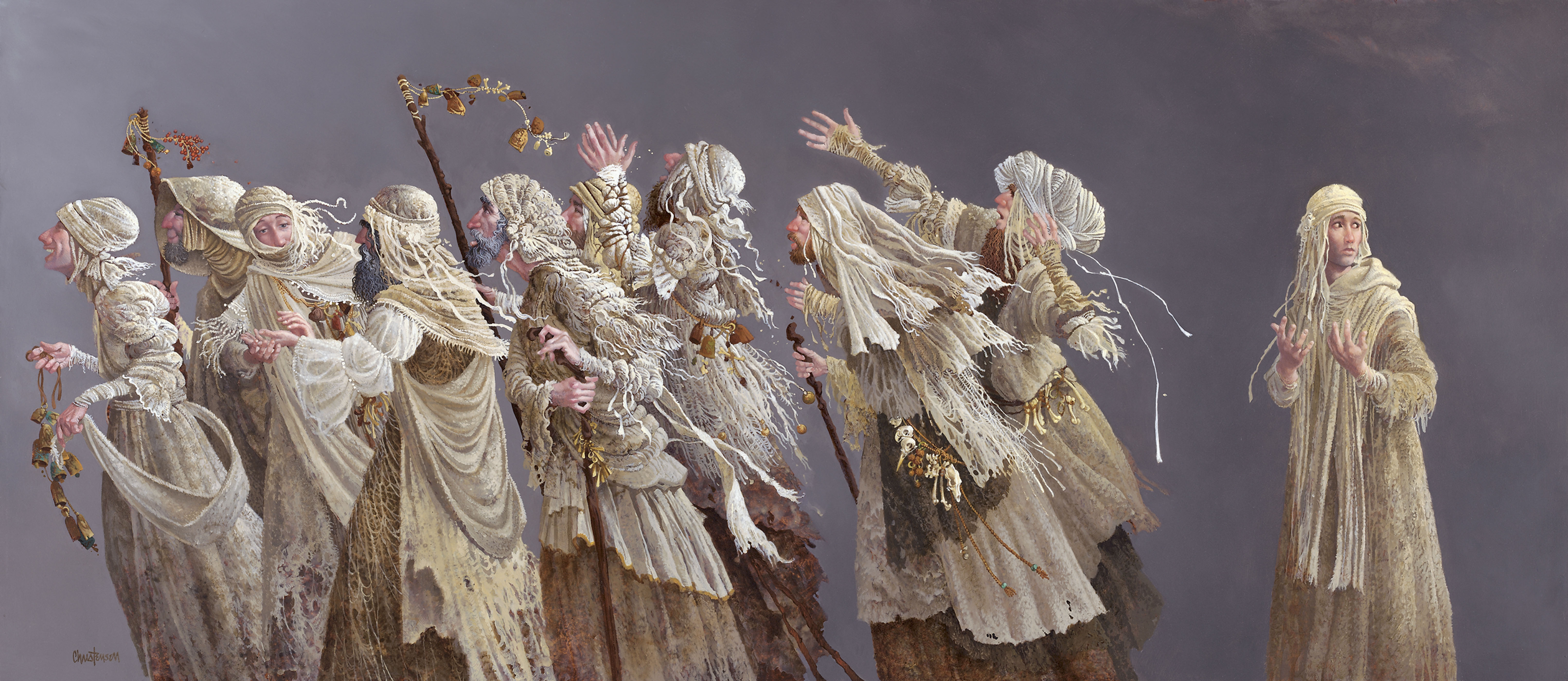 Central Idea: Giving glory to God. Doctrine: “The world was created for the glory of God.” Practical Application: How do we give glory to God?
Central Idea: Giving glory to God. Doctrine: “The world was created for the glory of God.” Practical Application: How do we give glory to God?
For Lectionary 144, click here.
Central Idea: Giving glory to God.
- With God’s power, the prophet Elisha was able to heal the foreigner, Naaman, from the scourge of leprosy. When Naaman returned to thank God and the prophet, Elisha would accept no monetary reward. Naaman received two gifts—the healing of his body, and faith in the one true God: “Now I know that there is no God in all the earth, except in Israel.” 2 Kgs 5:14-17
- The revelation of God’s salvation “to the nations,” that is, to every human being, is a primary task of each Christian. First, the Christian must know what God has done. Then, he can tell others. Ps 98:1, 2-3, 3-4
- St. Paul reiterates that the saved, that is, those who accept and remain faithful to the Gospel, receive two gifts: salvation and glory. We receive the forgiveness of our sins and healing from them. We also receive in heaven a divinization or share in the very life of God. 2 Tm 2:8-13
- Our Lord did for ten lepers what the great prophet Elisha did for one. Only one of them, also a foreigner, returned to thank God. When Jesus said to the Samaritan leper, “your faith has saved you,” he must have meant what Naaman learned upon his healing: “Now I know that there is no God in all the earth, except in Israel.” He knew that God’s power had to be at work in Christ.
- Elisha, Naaman, the Psalmist, Paul, and the Samaritan leper all gave glory to God. Lk 17:11-19
Doctrine: “The world was created for the glory of God”
- What is the meaning of the basic Christian doctrine that “The world was created for the glory of God”? According to St. Bonaventure, God created “not to increase his glory, but to show it forth and to communicate it.” “God has no other reason for creating than his love and goodness.” (CCC 293)
- The material universe itself in its age, size, laws, simplicity and complexity, order, information, power, and beauty manifest God’s greatness and goodness, although lower creatures, lacking consciousness and reason, show but don’t know God’s glory.
- As conscious and rational beings, we both show and know God’s glory. But there is more. God made us “to be his sons through Jesus Christ, according to the purpose of his will, to the praise of his glorious grace which he freely bestowed on us” through his Son (Eph 1:5-6). St. Iraneus made the startling claim that “the glory of God is man fully alive; moreover man’s life is the vision of God: if God’s revelation through creation has already obtained life for all the beings that dwell on earth, how much more will the Word’s manifestation of the Father obtain life for those who see God.”(CCC 294) God gives glory to creation, and man recognizes the source of that glory–God.
Practical Application: How do we give glory to God?
- If God creates in order to bestow benefits on his creatures, then we human beings give glory to God by becoming fully human. We do this by developing the talents God has given us, modeling our behavior on the perfect man, Jesus Christ, doing all this with the natural powers and supernatural grace that God gives us through the Sacraments. This is the work of a lifetime.
- Again, if God creates to bestow benefits on his creatures, we give glory to God in carrying out God’s original mandate, “Be fruitful and multiply, and fill the earth and subdue it” (Gen 1:28). We appreciate the creation just as we receive it and also work to develop and perfect it. We sanctify our work by offering it to God, serving others through it, and doing it as well as we can. This is the work of each day.
- We can also give glory to God by turning to him, like the lepers returned, with explicit works of praise, especially in the work of praise he has given us, the divine liturgy, especially the Holy Mass. Just by assisting at Mass, we give glory to God. This is the work of an hour on Sunday that spills over into the rest of our week. It is a work of every day if we wish.
Leave a Reply